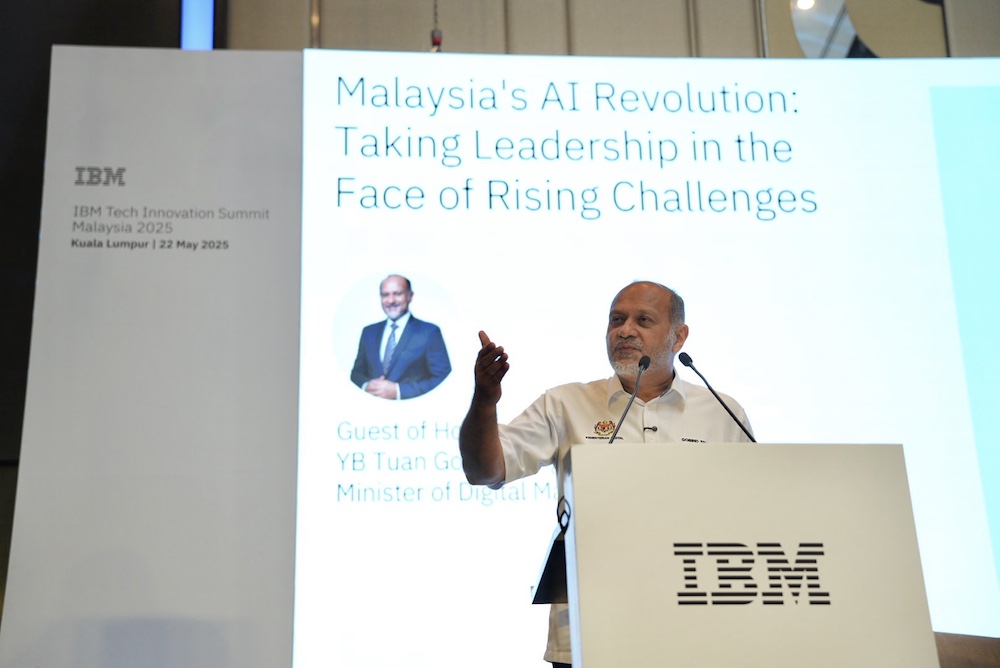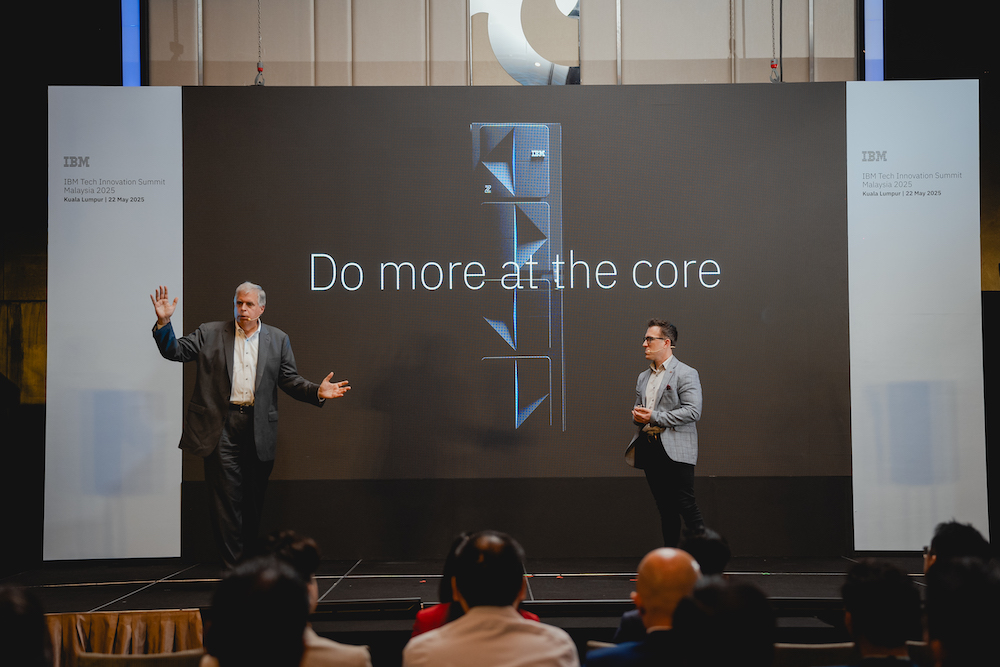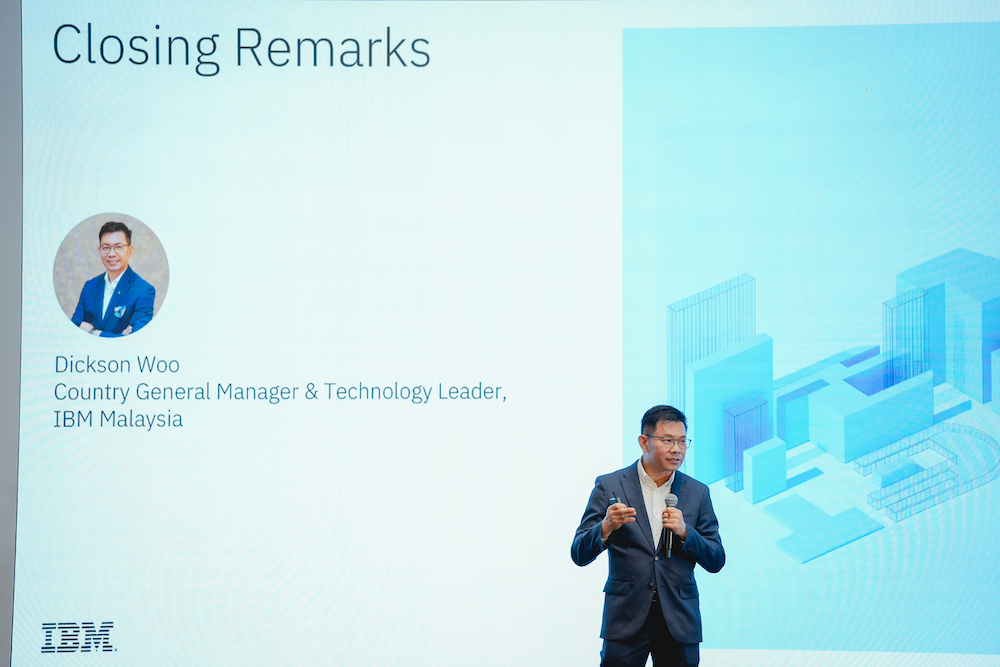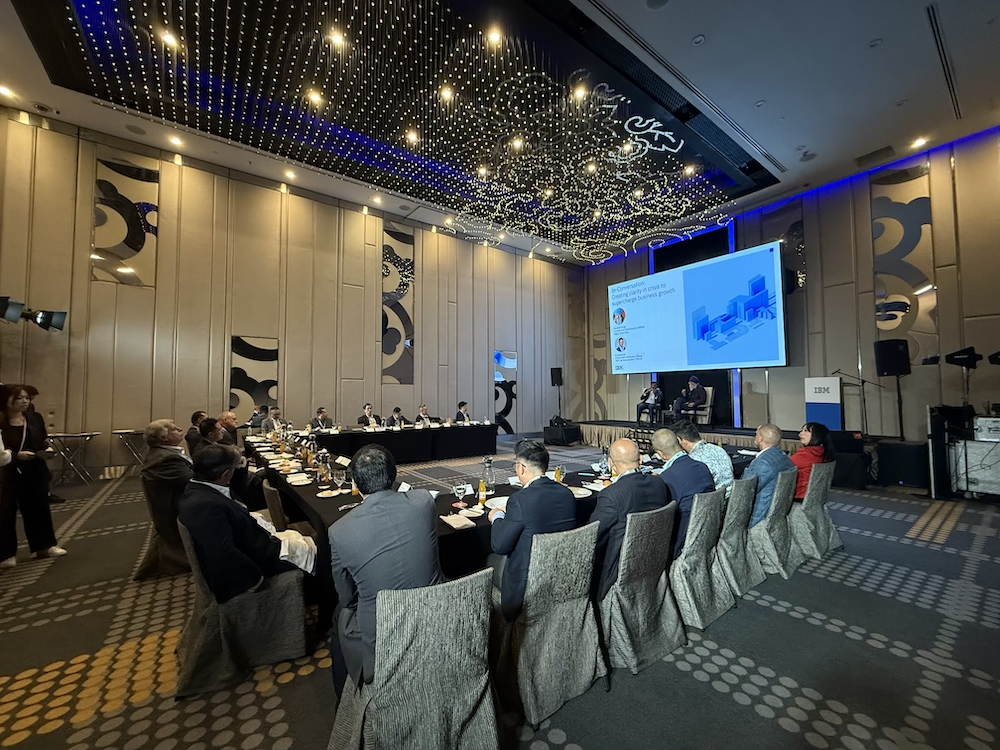Malaysia’s ambitions to become a regional AI and digital powerhouse gained fresh momentum at the IBM Tech Innovation Summit 2025 held in Kuala Lumpur recently, where IBM Malaysia unveiled a powerful suite of next-generation technologies designed to help enterprises scale AI securely and effectively.
The summit convened policymakers, industry leaders, and technology experts to explore how artificial intelligence, infrastructure, and governance can together fuel national growth.
In a keynote address that set the tone for the event, Minister of Digital YB Tuan Gobind Singh Deo called on businesses and institutions to act with urgency in adapting to the AI-driven future.
“Malaysia is racing to prepare for a tech-driven future,” he said. “Those who fail to adapt risk falling behind.”
Gobind emphasised that technology alone is not enough. For AI to deliver broad benefits, Malaysia must also strengthen its digital foundations – fostering trust, connectivity, and capability.

Since its formation in late 2023, the Ministry of Digital has already introduced key legislation, including the Cybersecurity Bill, Data Sharing Act, and updates to privacy laws, with the aim of building a secure and trusted digital ecosystem.
“This is just the beginning,” he added. “We must invest in skills, encourage cross-sector data sharing, and ensure that public trust is at the heart of everything we build. We must build a future-ready nation – together.”
Launching infrastructure for AI at scale
Taking centre stage at the summit was the launch of IBM z17 and IBM LinuxONE 5, two ground-breaking platforms engineered to meet the demands of high-volume, enterprise-grade AI.
IBM LinuxONE 5, the company’s most secure Linux platform to date, is capable of processing up to 450 billion AI inference operations per day. It supports containerised workloads and promises up to 44 percent reduction in total cost of ownership over five years, compared to x86-based systems – making it a compelling choice for businesses seeking both performance and efficiency.
IBM z17, meanwhile, brings AI to the core of enterprise operations. Powered by IBM’s Telum II processor, it enables real-time scoring of 100 percent of transactions and supports more than 250 AI use cases, from mitigating loan risk and detecting retail fraud to powering medical image analysis. It also integrates quantum-safe encryption and advanced AI accelerators, ensuring both speed and security.
In showcasing these platforms, IBM highlighted a central message: AI is only as powerful as the infrastructure behind it. Many organisations still struggle with poor data readiness, long deployment timelines, and difficulties integrating AI into existing systems. These new offerings aim to remove those barriers.

From experimentation to execution
In support of this, IBM also released findings from its latest survey with CEOs, which shows a striking trend: while AI investments are expected to more than double over the next two years, only 25 percent of initiatives have so far delivered the expected returns. However, optimism remains strong. By 2027, 85 percent of surveyed CEOs anticipate positive ROI from scaled AI efficiencies, while 77 percent expect returns from AI-fuelled growth and expansion.
Speaking at the summit, Dickson Woo, Country General Manager and Technology Leader at IBM Malaysia, made it clear that the age of AI experimentation is over.

“True competitive advantage lies in purpose-driven AI integration that delivers measurable outcomes,” Woo said. “In Malaysia, AI is set to unlock immense opportunities—driving innovation, boosting productivity, and opening new pathways for growth. IBM is combining hybrid technologies, agentic capabilities, and deep consulting expertise to help businesses operationalise AI and turn potential into performance.”
Designing future-ready industries with agentic AI
Another highlight of the summit was a powerful dialogue on agentic AI, a new paradigm where AI systems are capable of autonomously learning, deciding, and acting in complex environments. These systems go beyond conventional machine learning by initiating actions, optimising outcomes, and adapting over time – essential traits in today’s fast-moving digital economy.
With over a billion new apps projected by 2028, the digital landscape will become increasingly fragmented. Agentic AI offers a pathway to overcome that fragmentation by enabling scalable decision-making, operational agility, and intelligent automation across industries.
“IBM believes the potential for enterprise productivity lies in strategically managing all AI agents and assistants that work across enterprises,” said Woo.
Today, IBM is excited to introduce a new orchestrator agent feature to IBM watsonx™ Orchestrate that uses fine-tuned foundation models within an agentic architecture to provide advanced reasoning capabilities and autonomous decision-making to quickly address employee needs.
“That’s why IBM isn’t just making agents, we’re making it so that agents can get to work across businesses existing toolsets. IBM’s open approach combined with deep expertise in orchestration, integration and automation make us the trusted partner for enterprises looking to accelerate the adoption of agents and assistants.” said Woo.
“But to start actually putting agents into action, these agents must be able to connect and navigate an extensive, complex technology stack. Orchestration and automation are the secret weapons to unlock AI productivity — enabling businesses to connect and manage vast networks of agents and assistants across broad enterprise technology stacks,” he added.
Experts at the summit also emphasised the need for cross-sector collaboration, responsible AI governance, and data readiness as core enablers of this shift. By combining agentic systems with secure infrastructure like IBM z17 and LinuxONE 5, businesses can move from isolated pilots to full-scale, real-time AI deployment.
A trusted, inclusive digital economy
As the digital economy evolves, Malaysia’s approach – anchored in trust, infrastructure, and talent development – positions the country to lead in responsible AI adoption. The IBM Tech Innovation Summit reinforced the urgent need for stakeholders to work together to ensure AI delivers not just growth, but inclusive and sustainable impact.
With the right platforms and policies in place, Malaysia is well on its way to becoming a regional hub for AI innovation – one that is secure, ethical, and built to last.
In conversation: Creating clarity in crisis to supercharge business growth
The IBM Tech Innovation Summit hosted a C-suite luncheon facilitated by Karamjit Singh, Founder and CEO of Digital News Asia,” where senior leaders across healthcare, finance, aviation, manufacturing, and telecoms gathered for an open and thought-provoking dialogue on the future of artificial intelligence and its role in building business resilience.
One of the session’s focal points was the healthcare sector, where discussions highlighted how artificial intelligence is already transforming care delivery – not as a future promise, but as a present reality.
AI was framed not as a looming threat, but a powerful enabler across the healthcare system. From diagnostic support to remote monitoring, AI is helping providers make faster, more informed clinical decisions while simultaneously reducing operational costs and enhancing patient outcomes.
However, several attendees also underscored that technology alone isn’t the solution. Its effectiveness ultimately depends on how well people are prepared to use it and whether the surrounding ecosystem can support meaningful adoption.

This theme of responsible and purposeful AI adoption echoed throughout the luncheon. Leaders across industries agreed that while AI brings tremendous potential, it must be scaled with care. Concerns around data integrity, governance, and trust surfaced repeatedly, particularly in high-stakes sectors like healthcare and finance.
Participants shared real-world strategies – from establishing AI ethics committees to developing on-premise applications that safeguard sensitive data – as they work to balance innovation with accountability. There was a collective call for more structured frameworks to evaluate AI risks by use case and to future-proof workforce capabilities.
The conversation closed on a powerful note: true transformation doesn’t come from adopting technology alone, but from reimagining how it serves people, purpose, and progress. As AI becomes more deeply embedded in the fabric of business, success will belong to those who lead with clarity, invest in capability, and remain grounded in ethical intent. The path forward may be complex – but it’s also full of possibility.

